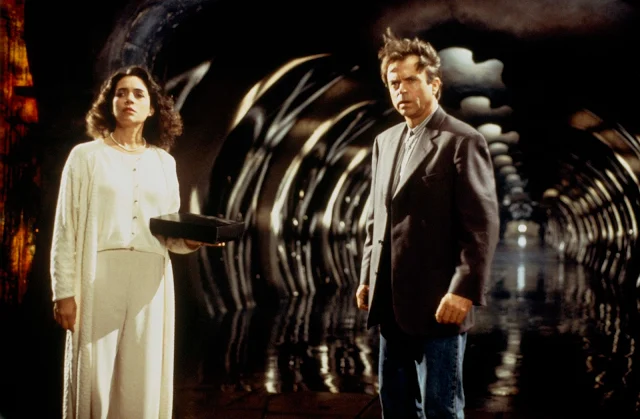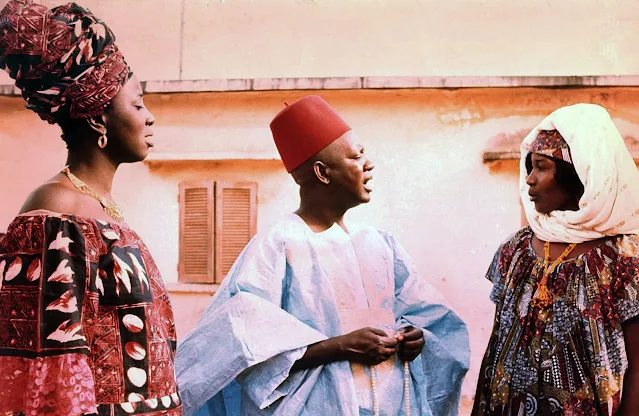 |
| Yoshiko Okada and Ureo Egawa in Woman of Tokyo |
Cast: Yoshiko Okada, Ureo Egawa, Kinuyo Tanaka, Shinyo Nara, Chishu Ryo. Screenplay: Tadao Ikeda, Kogo Noda, Yasujiro Ozu. Cinematography: Hideo Shigehara. Art direction: Takashi Kanasu. Film editing: Kazuo Ishikawa.
Woman of Tokyo, which runs only 45 minutes and was shot in nine days, shows Yasujiro Ozu moving toward the economy of narrative that marks his mature style. In it, Ozu also pays homage to one of the master directors who influenced him: Ernst Lubitsch. In the middle of the film, Harue (Kinuyo Tanaka) goes to the movies with her boyfriend Ryoichi (Ureo Egawa), and we see a bit of the movie they're watching: the 1932 anthology film If I Had a Million. It's the segment directed by Lubitsch featuring Charles Laughton as an office worker who, upon being given a million dollars, celebrates the windfall by razzing his boss. The Lubitsch segment has nothing to do with the plot of Woman of Tokyo, other than that the central character, Chikako (Yoshiko Okada), works in an office, which doesn't pay her enough to support herself and her brother, Ryoichi, a university student. Chikako resorts to prostitution as a result, and the plot turns on the revealing of her secret occupation. If I Had a Million was a talkie, but Lubitsch's segment is virtually silent, and I think Ozu alluded to it in Woman of Tokyo, which is one of his late silent films, as a kind of homage to visual narrative, at which Ozu would continue to excel.








